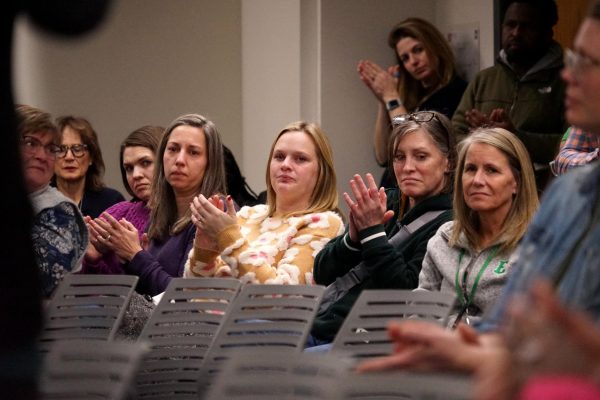American colleges adjust admission requirements during pandemic
September 11, 2020
The pandemic has affected just about every single aspect of human life, and college admissions is no exception. In an effort to take into account how students’ lives may have been impacted by COVID-19, many colleges have scrambled to make adjustments to their admissions criteria. However, various colleges have made different plans, and the result is a scattered, confusing admissions landscape.
Edina High School counselor William Hicks was formerly in charge of the EHS post-secondary planning program before the administration made changes to the counselor’s office last year and removed that position. He’s on the board of high school counselors for the admissions office at the University of Minnesota, and he’s been witness to the confusion on all sides. Their last meeting was in April. “The funny thing was, the University of Minnesota was asking us as many questions about our students as we were about their process,” Hicks said. “They didn’t know either.”
There have been some sweeping changes across the board, like the adoption of test-optional or test-blind evaluations. For hundreds of thousands of students, standardized testing is no longer available or extremely difficult to access; the SAT was cancelled for 178,600 students in August alone because testing centers either closed or reduced capacity to abide by safety guidelines. Most colleges, including the University of Minnesota Twin Cities, the University of Wisconsin Madison, and elite institutions like Harvard, Yale and MIT, have adopted one-year or longer test optional policies, where SAT and ACT scores are no longer necessary for admission.
Under a test-optional policy, students can still submit their scores if they wish. By contrast, a recent federal ruling has ordered the University of California system to go fully test-blind: test scores won’t be considered at all in their admissions this year. The judge argued that a test-optional policy still gives an advantage to those who were able to access testing.
Adjustments have been made to the writing portion of the Common Application as well. In the Additional Information section, students will have the opportunity to write about how the pandemic has affected their safety and health in 250 words or less, if they wish to. “From a counselor’s point of view, the pandemic has affected everyone directly in one way or another,” Hicks said. “I think what colleges are going to use that for is [if] something drastically changed with the student’s application . . . then I think that it would be imperative and important that they answer that question, but I don’t think that they’re going to be harmed if they don’t answer it.” Counselors will also be able to write about how their schools have adjusted to the pandemic in their counselor forms.
There are a lot of smaller concerns floating out there, including the issue of deferral. A large number of students from last year’s admissions cycle have deferred, rather than spend thousands of dollars on online classes. Many colleges have caps on the number of students who can defer to the next year, and some have stated that deferrals from the previous year won’t impact this year’s admissions process. However, this is not the case for all schools, and the disparity in policies means more variability in this year’s cycle.
But a lot of these changes are outside of students’ control. Even the things that students could normally act on, like standardized testing or extracurriculars, are no longer the same. Hicks advises students to focus on what they can control instead, like their schoolwork. “I think that’s one thing that hasn’t changed,” he said. “What colleges look at first and foremost is always the student’s schedule, and how well they perform in those classes. What I tell seniors [is that] this year is the most important year of your academic career, so really focus in on that—that’s the one thing you can control.”
These changes come amidst a broader national discussion about the state of higher education in the US, stirred by the Varsity Blues scandal and controversy over affirmative action. Many admissions officers see this moment as an opportunity to try to make admissions more fair; the test-optional policy is one that some colleges are considering extending beyond just this year, largely due to the fact that, historically, standardized testing has favored the most privileged.
Ultimately, to brave the college admissions process this year amidst all these changes, it’s necessary to do research into the policies of specific institutions. But students should take care not to worry too much, especially as the pandemic continues to drag on in the US. It’s critical to focus on health and wellness. A lot of factors are up in the air, so it’s important to grasp onto the parts of life that can be controlled.












